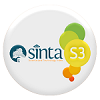Pemanfaatan Pengalaman Sejarawan untuk Meningkatkan Keterampilan Peserta Didik dalam Penelitian Sejarah
Abstract
In this era when technological advances make students vulnerable to unverified information, hoax, history learning has an important role in stimulating their criticism and literacy skills. Students understanding in the historical method which is consists of heuristics, criticism, interpretation, and art of historical writing as an effective working tool should be pursued one of them by obtaining such knowledge from historian’s experience presented in the learning process. This study uses the classroom action research method with Elliot's design to answer the problem of how to improve students' abilities in historical research through the use of historian's experience? From this study it can be concluded 1) there is increase in historical research skills after the students get material historian experience; 2) it also increase students' criticism in choosing sources of reference; 3) history learning becomes more interesting and challenging for students.
Keyword: Historical method, history learning, historical research, historian, classroom action researchKeywords
Full Text:
PDFReferences
Cuttica, C. (2019). Archaeologist, coroner, detective, lawyer, translator or what? the (intellectual) historian, cultural criticism, audiences and the painterly eye. Global Intellectual History, 6(5), 573-591. 10.1080/23801883.2019.1655520
Elliot, J. (1991). Action research for educational change developing and teaching. University Press
Gottschalk, L. (1985). Mengerti Sejarah. Jakarta: Universitas Indonesia
Haigh, N. (2012) Historical research and research in higher education: reflections and recommendations from a self-study. Journal Higher Education Research & Development, 31(5), 689-702. 10.1080/07294360.2012.689955
Hasan, S. H. (2012). Pendidikan sejarah indonesia : Isu dalam ide dan pembelajaran. Bandung : Rizqi Press.
Korzenik, D. (1985). Doing historical research. Journal Studies in Art Education, 26(2), 125-129. 10.1080/00393541.1985.11650409
McCully, A. (2012). History teaching, conflict and the legacy of the past. Education Citizenship and Sosial Justice, 7(2), 145-159. https://doi.org/10.1177/1746197912440854
Mulyasa. (2011). Praktik penelitian tindakan kelas. Bandung : PT Remaja Rosdakarya
National Center for the History in the Schools.(t.t.). Historical thinking. Diakses dari: http://www.nchs.ucla.edu/history-standards/standards-for-grades-k-4/historical-thinking-standards/4.-historical-research-capabilities
Purwanto, B. (2001). Historisisme baru dan kesadaran dekonstruktif: kajian kritis terhadap historiografi indonesiasentris. Jurnal Humaniora, 8(1), 29-44.
Rahayu, W. (2019). Pembelajaran Sejarah untuk Generasi Z. Jurnal Pendidikan Sejarah Indonesia, 2(1), 1-7.
Sanjaya, W. (2012). Strategi pembelajaran berorientasi standar proses pendidikan. Jakarta : Kencana
Sjamsuddin, H. (2007). Metodologi sejarah. Yogyakarta : Ombak.
Supriatna, N. (2007). Konstruksi pembelajaran sejarah kritis. Bandung : Historia Utama Press
Supriatna, N & Wiyanarti, E. (Editor). (2008). Sejarah dalam keberagaman. Bandung: Jurusan Pendidikan Sejarah FPIPS UPI.
Viator, M G. (2012). Developing Historical Thinking through Questions, Journal The Social Studies, 103(5), 198-200. 10.1080/00377996.2011.606438
Wiriaatmadja, R. (2002). Pendidikan sejarah di indonesia: perspektif lokal, nasional, dan global. Bandung: Historia utama press
Wiriaatmadja, R. (2014). Metode penelitian tindakan kelas: untuk meningkatkan kinerja guru dan dosen. Bandung : PT Remaja Rosdakarya.
DOI: https://doi.org/10.17509/historia.v3i1.19525
Refbacks
- There are currently no refbacks.
Copyright (c) 2024 Historia: Jurnal Pendidik dan Peneliti Sejarah
INDEXED
TOOLS

This work is licensed under a Creative Commons Attribution-ShareAlike 4.0 International License.
Alamat Redaksi: Gedung Numan Soemantri, FPIPS UPI, Departemen Pendidikan Sejarah, Lantai 2, Jl. Dr. Setiabudhi No 229 Bandung, 40154






